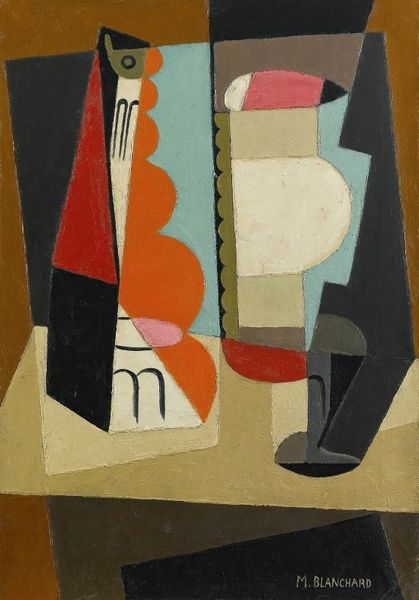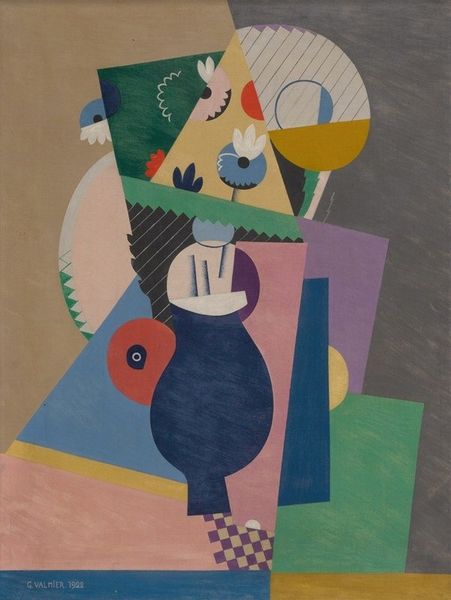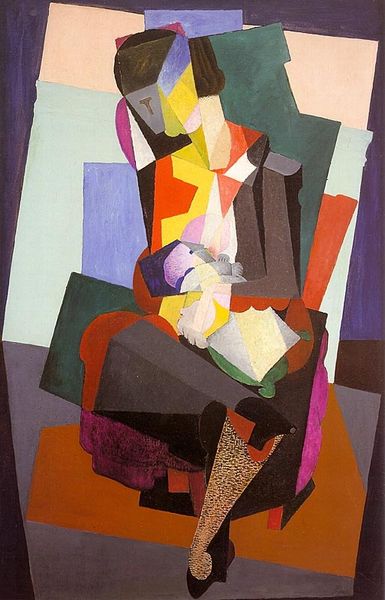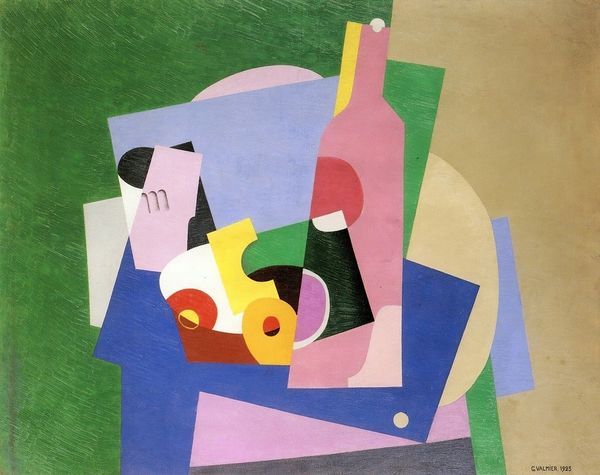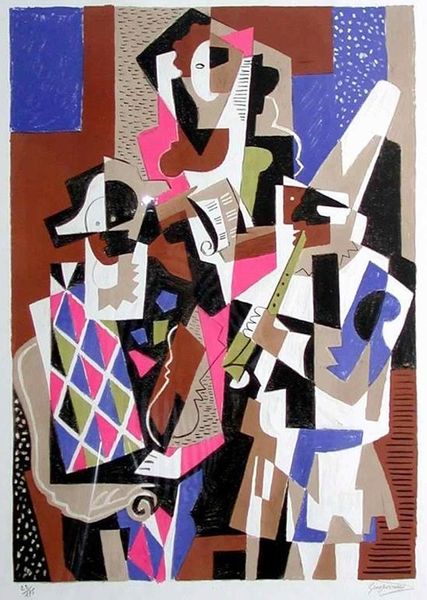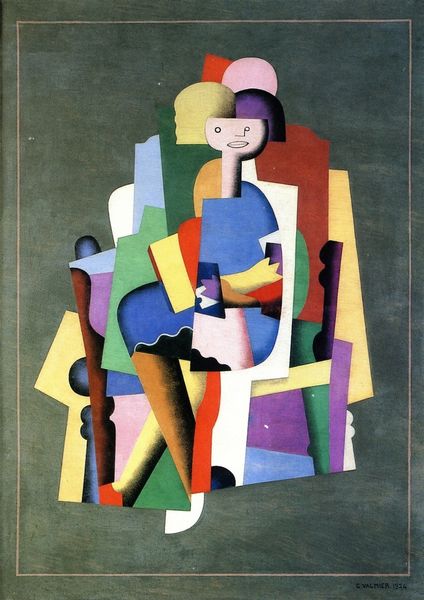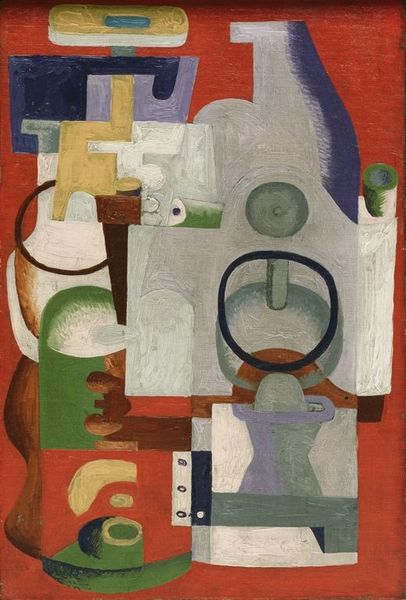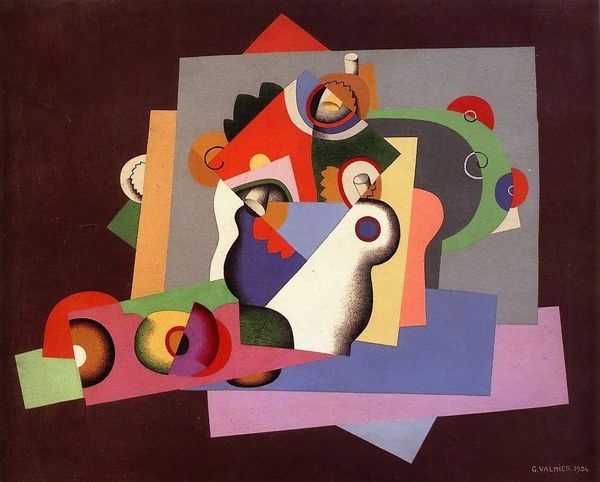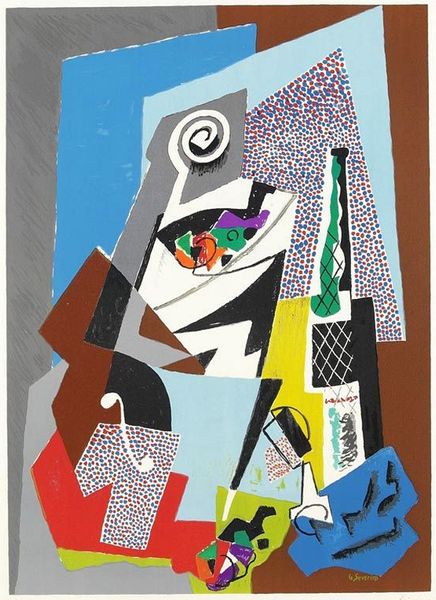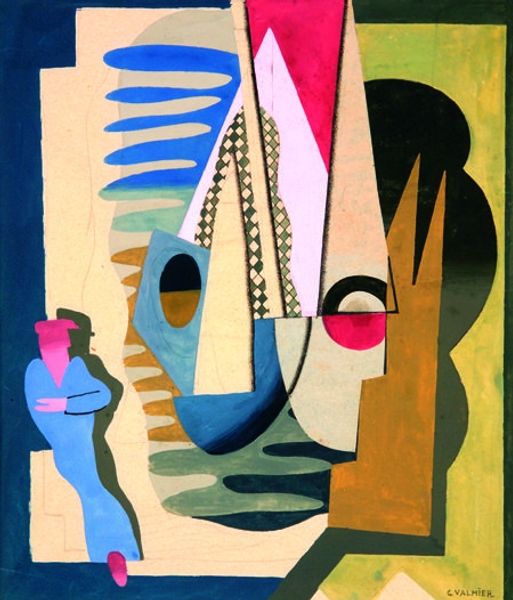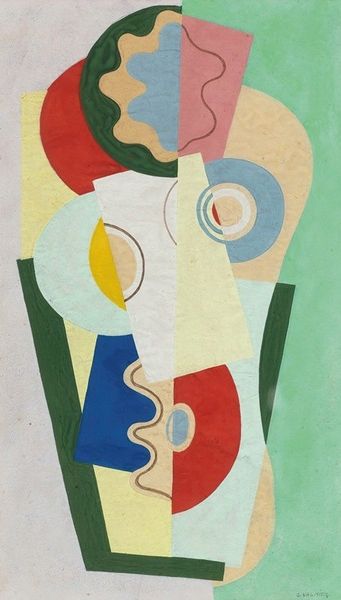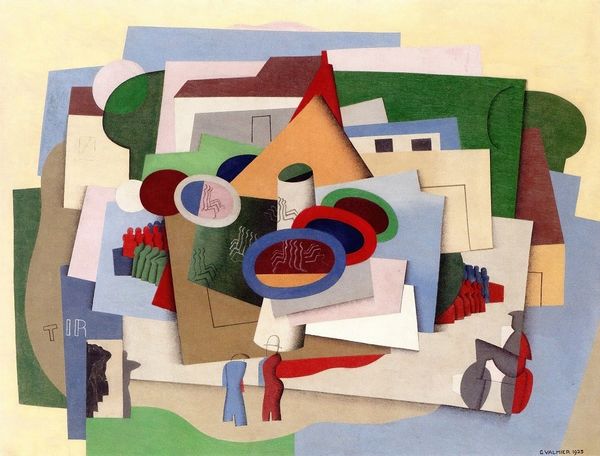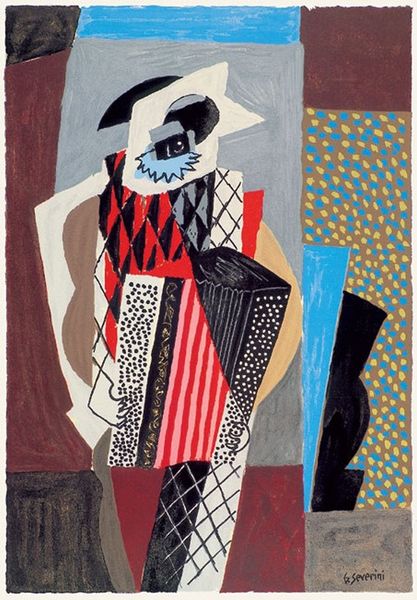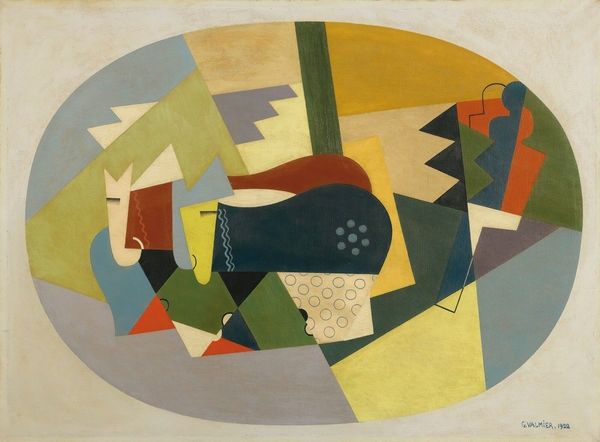
#
pop art-esque
#
cartoon like
#
popart
#
cartoon based
#
animated character
#
pop art
#
abstract
#
spray can art
#
cartoon style
#
cartoon carciture
#
cartoon theme
Copyright: Public Domain: Artvee
Editor: So, here we have Georges Valmier's "The Piano Lesson," created in 1924. It's certainly a striking composition of geometric shapes and vivid colors. There’s something playful yet rigidly structured about it. How do you interpret this work, focusing on its form? Curator: Immediately, the spatial organization demands attention. Valmier rejects traditional perspective, opting instead for a flattened plane where shapes collide and interact. Note the strategic placement of contrasting colors, how the cool blues and greens are juxtaposed against the warm reds and yellows. Does this color usage create a sense of harmony, or is there more discord at play? Editor: I see both. The colors are pleasing individually, but the lack of shading makes them feel almost confrontational together, fighting for dominance. Curator: Precisely. And observe the lines: rigid, deliberate, creating a sense of order but also confinement. Consider how Valmier uses these geometric forms—rectangles, triangles, circles—to suggest representational figures and objects. How effective is this approach? Editor: It's interesting. The forms barely resemble people or a piano, yet the title informs my perception, and I start to see those things hinted at. Curator: The title provides a key, doesn’t it? However, let us not rely solely on external information. If we analyze it based on form, can you decipher which forms create a sense of rhythm, and what shapes add dynamism? Editor: I see rhythm in the repeating patterns on the fabric and dynamism from the diagonals. I hadn't noticed that interplay before. Curator: Exactly, form guides understanding, it opens up visual literacy. Editor: This analysis has given me a whole new appreciation for abstract art and seeing its underlying structure! Curator: Indeed, recognizing these formal elements offers a richer experience of art in any context, whether abstract or representational.
Comments
No comments
Be the first to comment and join the conversation on the ultimate creative platform.
